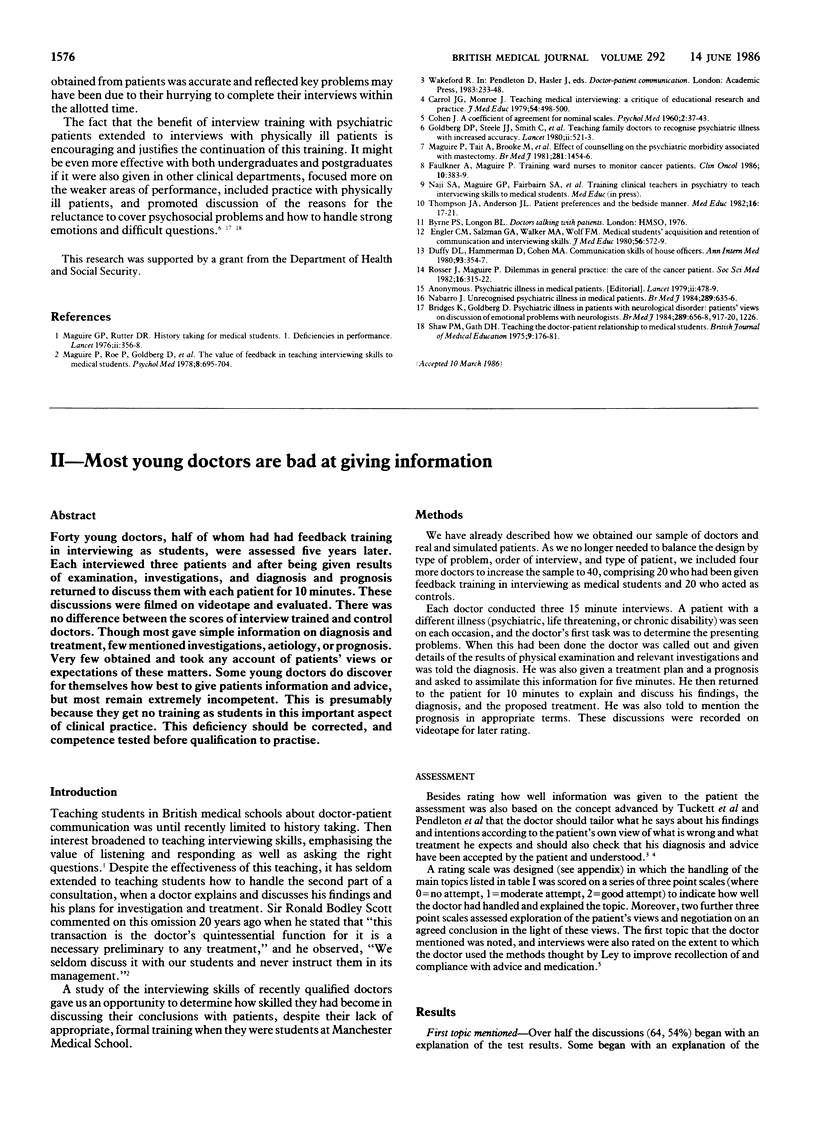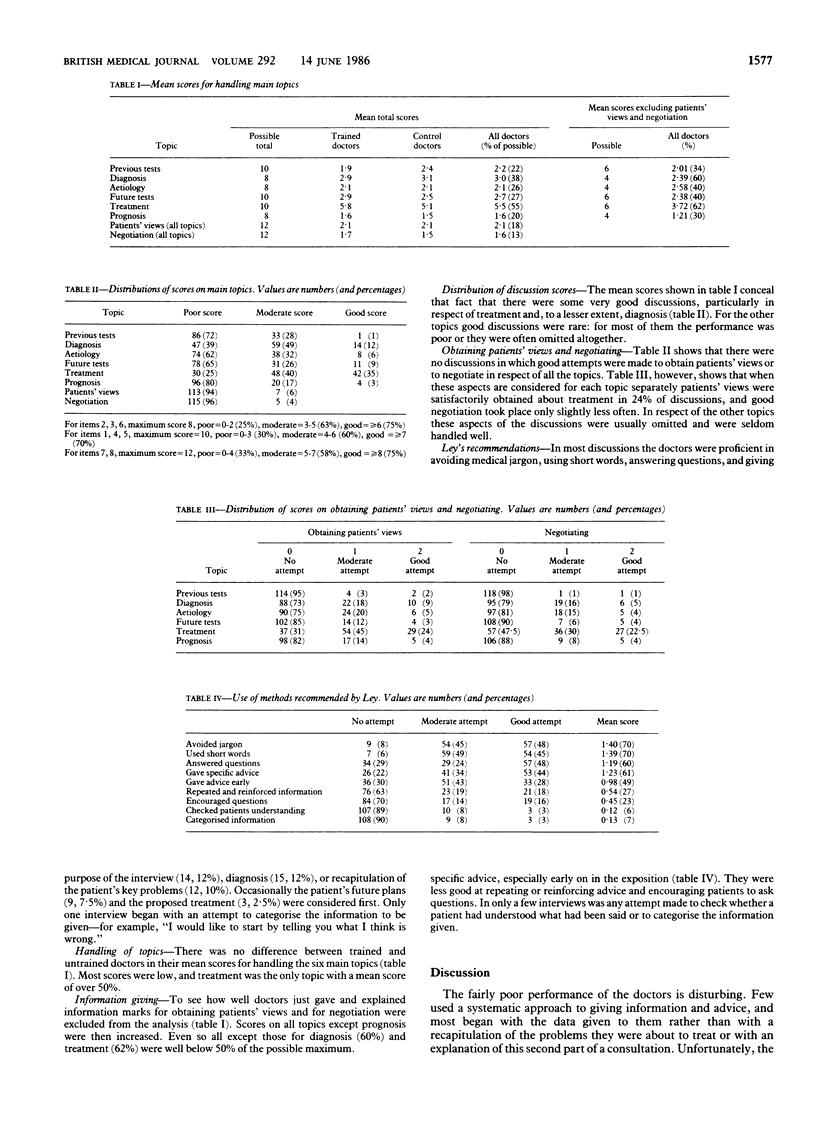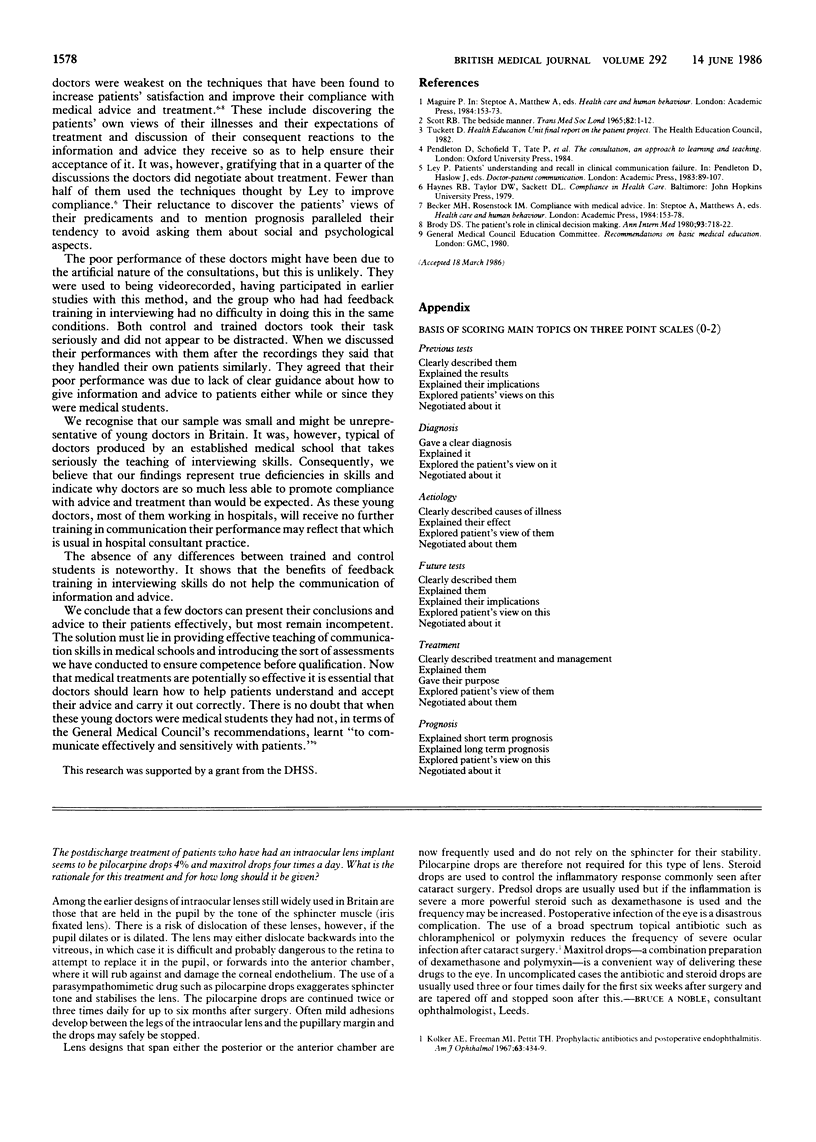Abstract
Forty young doctors, half of whom had had feedback training in interviewing as students, were assessed five years later. Each interviewed three patients and after being given results of examination, investigations, and diagnosis and prognosis returned to discuss them with each patient for 10 minutes. These discussions were filmed on videotape and evaluated. There was no difference between the scores of interview trained and control doctors. Though most gave simple information on diagnosis and treatment, few mentioned investigations, aetiology, or prognosis. Very few obtained and took any account of patients' views or expectations of these matters. Some young doctors do discover for themselves how best to give patients information and advice, but most remain extremely incompetent. This is presumably because they get no training as students in this important aspect of clinical practice. This deficiency should be corrected, and competence tested before qualification to practise.
Full text
PDF


Selected References
These references are in PubMed. This may not be the complete list of references from this article.
- Brody D. S. The patient's role in clinical decision-making. Ann Intern Med. 1980 Nov;93(5):718–722. doi: 10.7326/0003-4819-93-5-718. [DOI] [PubMed] [Google Scholar]


